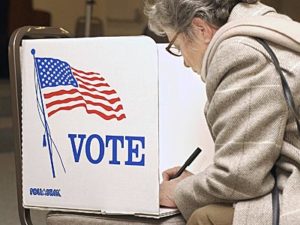
It was obvious a year ago that the 2010 midterms were going to be about domestic issues, specifically the economy, jobs, and health care. But it was hard to predict just how little foreign policy, the Afghanistan war included, would play in this political season. The war in Afghanistan has to be considered the top foreign affairs issue of the day, but that isn’t saying much.
There are many reasons why domestic matters are overshadowing the Afghan war when it comes to voters and politicians’ minds right now. President Obama and the Democratic majority in Congress spent most of their efforts on domestic issues (Stimulus, health care reform, financial industry reform) and rarely discussed the Afghan war effort. The President almost never talks about the Afghan war and has used his political capital and bully pulpit for other issues. The American populace is unsurprisingly also inward looking as jobs aren’t going to come from Afghanistan. In a New York Times/CBS News Poll 60% Americans listed the economy or jobs as the most important problem facing the country while only 3% listed Afghanistan. The American people have a list of concerns and the Afghan war just isn’t at the top of that list right now. It is also true that both Democrats and Republicans do not find the Afghan war a beneficial talking point in their election campaigns. After all, Republicans actually agree with the President on the issue (which both sides have so far chosen to downplay) and the Democratic party fears bringing up the issue as it has the possibility to split the party (not literally), with some liberal Democrats deeply disappointed in the President Obama’s decision to escalate the conflict. Political analyst extraordinaire Charlie Cook brings up another reason the war has fallen off the political radar in an interview with the New York Times:
“I think the president is an ironic beneficiary of the success of Bush’s Iraq war surge,” said Charles Cook, publisher of the Cook Political Report and an independent analyst of Congressional races. At the time that Mr. Bush ordered additional American troops to Iraq, many foreign policy experts argued that was a move bound to fail. It did not. “So the Afghan surge is getting a honeymoon of some time.”
Though Americans are growing more and more skeptical of a successful outcome in the Afghanistan conflict, I think it is accurate to discern that many Americans are at least giving this administration’s surge strategy some time to work. However, as the same New York Times article points out, the American public will not wait that long before they want to see results:
But Afghanistan, political analysts say, will almost certainly be a campaign issue in 2012, when Mr. Obama is likely to be on the ballot trying to keep his own job. By 2012, it will be clear whether Mr. Obama’s troop surge in Afghanistan, and his decision to begin bringing troops home next summer, has worked. The president will probably have to fend off challenges from both the right and the left on Afghanistan.
That is 2012, and 2010 is already a handful, so I wait to comment on that last part for at least a few….months.